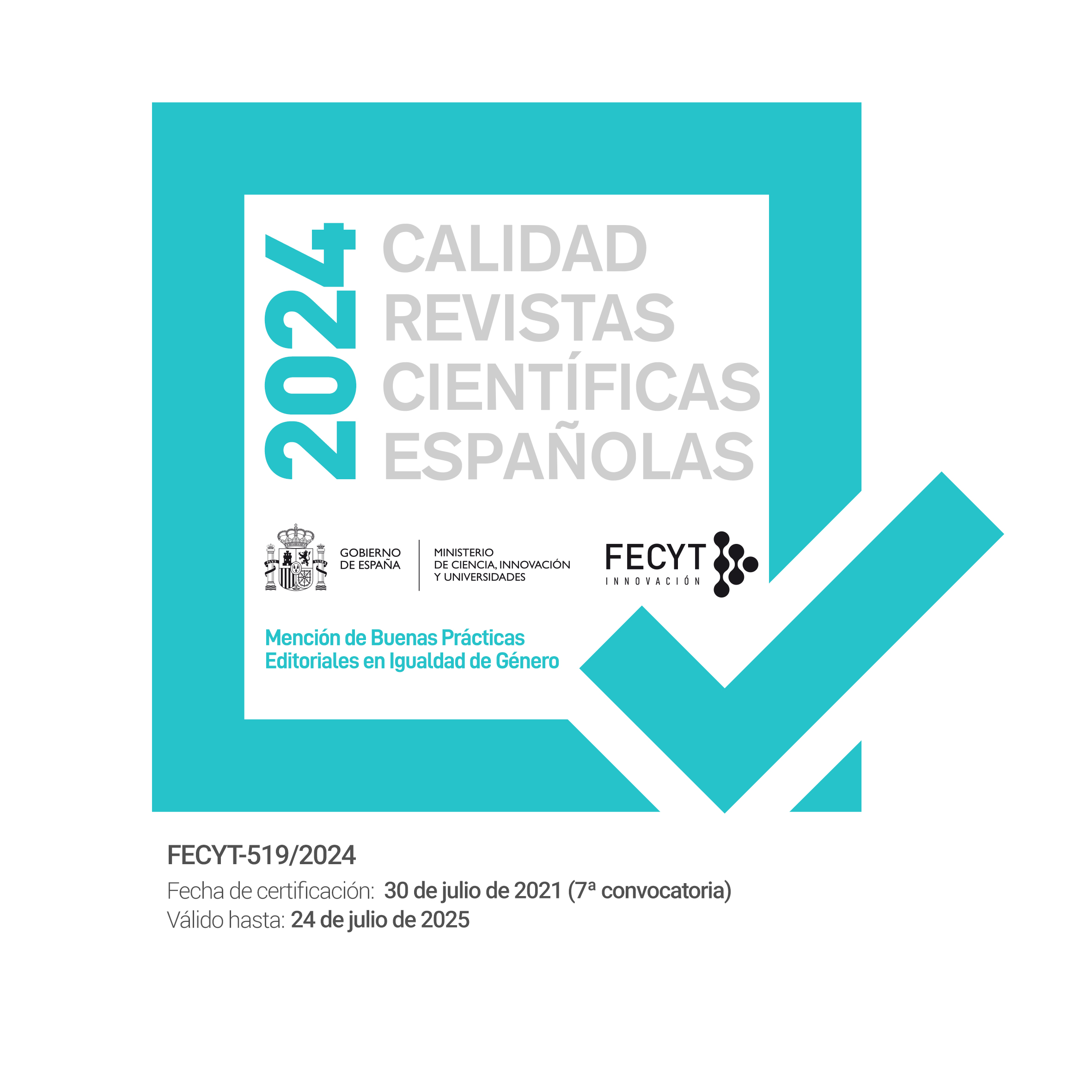Fashion Anglicisms in Modern Greek: A preliminary investigation
Palabras clave:
anglicism, borrowing, loanword, fashionResumen
English nowadays is the dominant language in the domain of fashion sinceEnglish and American companies lead the fashion industry worldwide. As a result, a high number of English fashion loanwords have entered the languages of the world and become part of their vocabulary. A considerable number of Anglicisms regarding fashion is attested in Modern Greek too. This work is a preliminary investigation of fashion Anglicisms in MG through their appearance in Greek online shops and social media pages of fashion stores and magazines. Our investigation shows that fashion Anglicisms in MG are present in the MG vocabulary and are used by MG speakers in their transliterated or non-transliterated forms. In particular, we examine in detail how Anglicisms exist in their non-transliterated form in the MG language system, a fact that is, among others, related to prestige perceptions of English that are dominant in Greek society.Descargas
Citas
Anastasiadi-Simeonidi, A. (1994). Neologikos daneismos tis neoellinikis. Amesa daneia apo tin Galliki kai tin Agloamerikaniki, morfofonologiki analisi. Thessaloniki: Aristotle University.
Balteiro, I. & Campos, M. Á. (2012). False anglicisms in the Spanish language of fashion and beauty. Ibérica 24, 233-260.
Bybee, J. (2015). Language change. Cambridge: Cambridge University Press.
Fischer, R. (2008). Introduction: Studying Anglicisms. In R. Fischer & H. Pulaczewska (Eds.), Anglicisms in Europe: Linguistic diversity in a global context (pp.1-17). Newcastle Upon Tyne: Cambridge Scholars Publishing.
Crystal, D. (2003). English as a global language. 2nd ed. Cambridge: Cambridge University Press.
Furiassi, C. (2010). False Anglicisms in Italian. Monza: Polimetrica International Scientific Publisher.
Hjarvard, S. (2004). The globalization of language: How the media contribute to the spread of English and the emergence of medialects. Nordicom Review 1-2, 75-97.
Lopriore, L. & Furiassi C. (2015). The influence of English and French on the Italian language of fashion: Focus on false Anglicisms and false Gallicisms. In C. Furiassi & H. Gottlieb (Eds), Pseudo-English: Studies on False Anglicisms in Europe [Language Contact and Bilingualism 9] (pp. 197-226). Boston & Berlin: De Gruyter Mouton.
McMahon, A. (1994). Understanding language change. Cambridge: Cambridge University Press.
Papadopoulou, R. (2016). The Phenomenon of Anglicisms: From Idiomatic MWEs to Morphosyntactic Structures. Unpublished Master Thesis. University of Patras, Department of Philology, Division of Linguistics.
Papadopoulou, R. & Xydopoulos, G. J. (2016). The influence of English on Modern Greek: Exploring some newly calqued lexical patterns. Paper presented to the ESSE 13 Conference. Galway, 22-26 August 2016.
Petrounias, E. (2007). Neokatharevousa kai eksaglismos tis ellinikis: grammatiko sistima. Studies in Greek Linguistics, Proceedings of the annual meeting of the Department of Linguistics Faculty of Philosophy Aristotle University of Thessaloniki 6-7 May 2007 (pp. 348-360). Thessaloniki: ΙΝΣ.
Pulcini, V., Furiassi, C. & Rodriguez Gonzalez, F. (2012). The lexical influence of English on European languages: From words to phraseology. In V. Pulcini, C. Furiassi & F. Rodriguez Gonzalez (Eds), The Anglicization of European Lexis (pp. 1-24). Amsterdam: John Benjamins Publishing Company.
Ralli, A. & Xydopoulos, G.J. (2012). Blend Formation in Modern Greek. In V. Renner, F. Maniez & P. Arnaud (Eds.), Cross-disciplinary perspectives on lexical blending (pp. 35-50). Berlin: Mouton de Gruyter.
Xydopoulos, G.J. (2003). H dimiourgia ton “Brand Names” sti diafimisi apo mia lexikologiki skopia. ELETO 4o Sunedrio Ellhniki Glossa kai Orologia (pp. 1-12). Athens 30 October - 1 November 2003.
Xydopoulos, G.J. (2005). Mia anazitisi ton glossikon mixanismon dimiourgias ton proiontikon onomaton. Studies in Greek linguistics, Proceedings of the annual meeting of the department of Linguistics Faculty of Philosophy Aristotle University of Thessaloniki 7-9 May 2004. Thessaloniki: ΙΝΣ.
Xydopoulos, G.J. (2008). Lexikologia: Eisagogi stin analisi tis lexis kai tou lexikou. Athens: Ekdoseis Pataki.
Online sources
Cambridge Dictionary available at https://dictionary.cambridge.org
Dictionary.com available at http://www.dictionary.com
English Oxford Living Dictionaries available at https://en.oxforddictionaries.com
Urban Dictionary available at https://www.urbandictionary.com
Wikipedia available at https://www.wikipedia.org
Descargas
Publicado
Cómo citar
Número
Sección
Licencia
Aquellos autores/as que tengan publicaciones con esta revista, aceptan los términos siguientes:
- Los autores/as conservarán sus derechos de autor y garantizarán a la revista el derecho de primera publicación de su obra, el cuál estará simultáneamente sujeto a la Licencia de reconocimiento de Creative Commons que permite a terceros compartir la obra siempre que se indique su autor y su primera publicación esta revista.
- Los autores/as podrán adoptar otros acuerdos de licencia no exclusiva de distribución de la versión de la obra publicada (p. ej.: depositarla en un archivo telemático institucional o publicarla en un volumen monográfico) siempre que se indique la publicación inicial en esta revista.
- Se permite y recomienda a los autores/as difundir su obra a través de Internet (p. ej.: en archivos telemáticos institucionales o en su página web) antes y durante el proceso de envío, lo cual puede producir intercambios interesantes y aumentar las citas de la obra publicada. (Véase El efecto del acceso abierto).

Revista de Lenguas para fines específicos is licensed under a Creative Commons Reconocimiento-NoComercial-SinObraDerivada 4.0 Internacional License.























